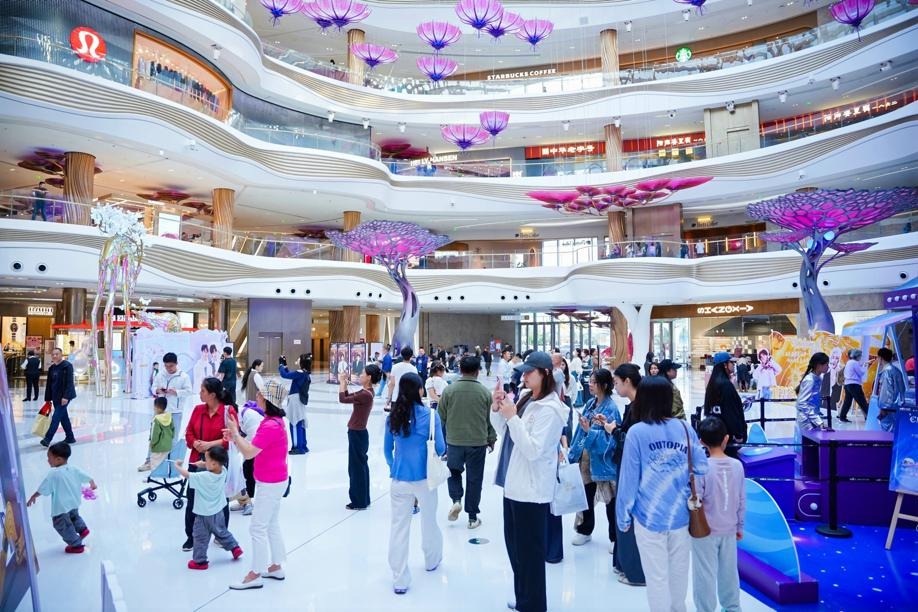Online shopping may have hidden health costs

Traveling by train on a recent business trip and looking to relieve a bit of boredom, my colleague introduced me to what is probably the 19th shopping app downloaded on my phone. As if I needed any more. In an age where I grew up thinking owning a motorized vehicle was the ticket to convenience, technology has brought everything right to our doors. It's not all positive progress though. Not only has technology killed chivalry (that's a topic for another column) but it's also triggered and exacerbated mental health issues.
Growing up in the nondigital age and being forced to get bundled up in the depths of Minnesota winters just to drive to a store, get home, realize we forgot something and repeating the cycle, online shopping has become a blessing in so many ways. While millennials likely take these conveniences for granted and older generations are in awe at the advancements, the fact is that we attach ourselves more and more to technology, putting us at risk for growing mental health problems such as addiction, anxiety, depression and isolation.
Online shopping has contributed to the growth of the global economy in many ways-it has increased demand and employment, expanded accessibility and consumption, and improved business operations. Without it, many businesses would not have survived a pandemic that has prevented many consumers from being able to visit brick-and-mortar shops. Buyers can connect with sellers all over the world and logistics have improved so much that many products can be shipped from China to Europe or the United States and arrive within days. Clothing, cosmetics, services, food, tickets, transportation and more-it can all be ordered and received just by entering some information and clicking. And you don't even need to leave your bed.
The variety of items available online is astounding… and overwhelming at times. After exploring the app that my colleague introduced me to, it struck me how many of the products were completely risible, ludicrous and gratuitous. Yet they were placed and advertised in a way that made one feel like they had found something they didn't even realize they needed. After registering my information that included my address, gender and birth date, the products popping up on the homepage included cosmetics, face creams, weight loss supplements and fashion accessories. Using algorithms to track the items I clicked on, the homepage changes to other unnecessary things that the app thinks I might be more inclined to purchase.
Of course all of this convenience, not to mention discounts and deals, is impressive to an old-school shopper like me. How many of us not only take it for granted but suffer mentally and physically without even realizing it? Sure, I will go to great lengths to avoid crowds or even having person-to-person contact if I can help it, but as human beings, we are not wired to isolate. It can even be hard on our hearts. According to Andreas Hoffman of the University of Basel, Switzerland and his article published in the European Journal of Preventive Cardiology, "Earlier studies in various populations have shown the independent negative prognostic impact of living alone or the lack of a stable partnership or bereavement in terms of cardiovascular risk and the outcome of established cardiac disease." In other words, humans need other humans.
Even if you're not someone who lives alone, how healthy is it that we are able to obtain almost anything just by using our fingertips? Shopping apps are convenient, yes, but they can also cause us to overspend, become hoarders, avoid personal contact with others outside our homes, and … suffer from depression. Can you even become addicted? Psychologist Timothy J.Legg claims addictive personalities are a myth. However, many experts point out that the surge in serotonin levels and endorphins that people experience when completing a purchase and receiving a package can be very difficult to let go of. We are a generation that is thriving on instant gratification and satisfaction and what is an easier way to obtain these feelings other than buying whatever we think we need and want online?
Should we be grateful for technology that has made our lives easier and more efficient? Yes. Are we lucky that during a pandemic or illness, we still have access to getting what we need and want? Of course we are. Should we be cautious of our usage of such apps? Absolutely. Next time you're considering buying your third pair of rubber shoe covers or that great deal on tea that claims to make you lose 50 percent of your body fat in three days, put your phone down and call a friend to meet for a coffee. It'll feel good to have a face-to-face exchange where you can review all of the unnecessary purchases you've both made recently.

Today's Top News
- Civil aviation readies for record rush
- Early gains follow new customs operations in Hainan
- Facts on the ground: reading China's economy
- Debris-hit spacecraft returns after 270 days in orbit
- 'Hard-won' 5% GDP rise shows firm footing
- Wake-up call for Europe to review its dependency: China Daily editorial






























